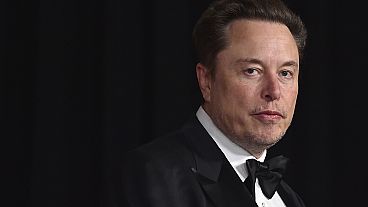By William Schomberg and Andy Bruce
LONDON -Britain's economy grew by a faster-than-expected 1.0% in June, the first full month of indoor service for many hospitality firms, and also helped by the healthcare sector due to a rise in routine medical checkups after the pandemic.
But the official data https://www.ons.gov.uk/economy/grossdomesticproductgdp/bulletins/gdpmonthlyestimateuk/june2021 showed British gross domestic product remained 2.2% smaller than it was immediately before the pandemic struck the country, a reminder of the damage done by Britain's long coronavirus lockdowns last year.
Britain's economy slumped by almost 10% in 2020, one of the biggest hits suffered by a rich nation, and the Bank of England expects it to regain its pre-pandemic size only at the end of 2021. The U.S. economy has already made up the hit.
The GDP figures have yet to show the impact of a surge in coronavirus cases in July although other data published on Thursday showed consumer spending in the week to Aug. 5 rose to within a whisker of its February 2020 level.
The month-on-month growth for the overall economy in June was stronger than an increase of 0.8% expected in a Reuters poll of economists.
Sandra Horsfield, an economist with Investec, said confidence among consumers and businesses was likely to build over time as long as there was no return to lockdowns.
"How smooth the transition will be is the big unknown, with perhaps the biggest question marks hanging over the performance of the labour market once the furlough scheme fully ends in late September," she said.
Finance minister Rishi Sunak repeated on Thursday that he had no plans for a further extension of the furlough programme which has protected the incomes of millions of workers.
SERVICES LEAD THE WAY
Britain's huge services sector grew by 1.5% in June. Healthcare contributed the most to growth, as family doctors saw more of their regular patients due to an easing of coronavirus precautions, the Office for National Statistics said.
Output from food and beverage services such as pubs and restaurants jumped by more than 10%, helped by the Euro 2020 soccer tournament.
Industrial output shrank by 0.7%, hit by maintenance of oil field production sites and a swing in the volatile pharmaceutical industry. The narrower measure of manufacturing grew by 0.2%, while construction output fell by 1.3%.
Compared with the first quarter of this year, when much of Britain's economy was in the grip of a third lockdown, economic output was up by 4.8%, the ONS said.
The International Monetary Fund expects Britain's economy to grow by 7% in 2021, the same as the United States, as it bounces back from last year's slump.
However, the Bank of England thinks Britain's economy will eventually settle back into its pre-crisis rut of slow growth. It expects British GDP to grow 5.75% next year but by only 1.25% in 2023.
Last week the BoE laid out its plans for a "modest tightening" of its huge stimulus programme.
The ONS lowered its estimate for growth in May to 0.6% from an originally reported 0.8% increase but revised up April's rebound to 2.2% from 2%.
Gross domestic product in the three months to the end of June was 22.2% higher than in the same period of 2020, reflecting the impact of the first coronavirus shutdown last year and the lifting of restrictions this year.
Separate trade data from the ONS showed British exports to the European Union in May and June exceeded their levels immediately before Britain left the EU's single market at the start of this year, excluding volatile trade in precious metals.



